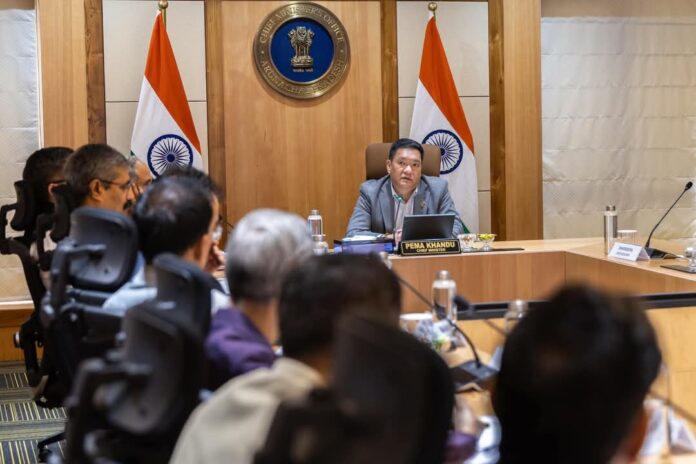The Arunachal Pradesh government has appointed Guardian Ministers to monitor the progress of key development activities in various districts. The announcement, made on December 12, 2024, is aimed at improving coordination between the state and district-level administrations and ensuring that development schemes reach the grassroots level efficiently.
The Guardian Ministers will be tasked with overseeing the implementation of government policies, welfare schemes, and infrastructural projects, as well as ensuring that the funds allocated for these projects are utilized effectively. With Arunachal Pradesh’s vast geographical expanse and challenging terrain, the appointment of Guardian Ministers is seen as a step towards improving administrative accountability and expediting the pace of development in the state.
The Role of Guardian Ministers
The concept of Guardian Ministers is not new in Indian governance, but its introduction in Arunachal Pradesh marks a focused attempt by the state government to address the unique challenges of its diverse districts. Each Guardian Minister will be assigned a specific district or group of districts, and their primary responsibility will be to monitor and review the progress of development projects in their designated areas.
The Guardian Ministers will be responsible for ensuring that various government schemes—such as those related to education, healthcare, rural development, roads, and agriculture—are being implemented effectively. They will also coordinate with district officials, local bodies, and other stakeholders to ensure that projects are completed on time and meet the required standards.
One of the most important roles of the Guardian Ministers will be to act as a bridge between the state government and the local administration. They will be expected to visit their assigned districts regularly, meet with local leaders, and ensure that the voice of the people is heard at the state level.
A Move Towards Decentralized Governance
Chief Minister Pema Khandu, while making the announcement, stressed that the appointment of Guardian Ministers is part of a broader vision to decentralize governance in Arunachal Pradesh. “Our government is committed to ensuring that development reaches every corner of the state, and the appointment of Guardian Ministers is a step in that direction. By having senior ministers directly monitor the progress of schemes, we aim to address bottlenecks in implementation and bring about faster development in the remotest areas,” Khandu said.
The Chief Minister added that decentralized governance would not only improve the efficiency of administrative processes but also empower local communities to take charge of their own development. “We want to ensure that every district is able to develop according to its unique needs and priorities. The Guardian Ministers will work closely with local representatives to identify these needs and help implement targeted solutions,” Khandu said.
Strengthening Local Governance
The introduction of Guardian Ministers is expected to strengthen local governance by fostering closer ties between the state government and district administrations. It will provide a platform for greater dialogue between elected representatives, local leaders, and the government, ensuring that development initiatives are tailored to the specific needs of each district.
In his statement, Pema Khandu emphasized the importance of grassroots participation in the development process. “The people of Arunachal Pradesh know their own needs better than anyone else. By involving local leaders and communities in the development process, we will be able to design solutions that are practical, sustainable, and aligned with the aspirations of the people,” he said.
Enhancing Accountability and Transparency
One of the key objectives of the Guardian Ministers is to increase accountability in the implementation of development projects. By closely monitoring the progress of each project, the appointed ministers will ensure that there is no misuse of public funds and that projects are completed within the specified timelines.
The state government has also expressed its commitment to improving transparency in the governance process. The Guardian Ministers will be responsible for conducting regular reviews of ongoing projects and submitting reports to the Chief Minister and relevant departments. These reports will provide an overview of the progress made and highlight any challenges faced in the implementation process, which will help the government take corrective actions promptly.
Focus on Infrastructure and Social Welfare
Arunachal Pradesh has long struggled with inadequate infrastructure, particularly in rural and remote areas. The appointment of Guardian Ministers is expected to prioritize the completion of vital infrastructure projects, such as roads, bridges, and electricity supply, which are essential for improving the quality of life for the people of the state.
In addition to infrastructure, the Guardian Ministers will also focus on social welfare schemes related to healthcare, education, and poverty alleviation. The state government has allocated substantial resources to improve healthcare facilities, build new schools, and create job opportunities in rural areas. The Guardian Ministers will ensure that these schemes are implemented effectively and reach those who need them the most.
A New Era of Governance in Arunachal Pradesh
The appointment of Guardian Ministers marks a significant step towards more efficient and inclusive governance in Arunachal Pradesh. With the state’s diverse topography and socio-economic challenges, it is crucial to have a system in place that ensures development reaches every district, particularly the most remote ones. The Guardian Ministers will play a crucial role in making this vision a reality.
As the state moves forward with this new initiative, it is hoped that the closer monitoring and targeted efforts will lead to tangible improvements in infrastructure, social welfare, and overall development. The people of Arunachal Pradesh can look forward to a more responsive and accountable government, one that is focused on their needs and committed to their progress. The success of this initiative could set a precedent for other states, particularly in the Northeast, where similar challenges exist.




